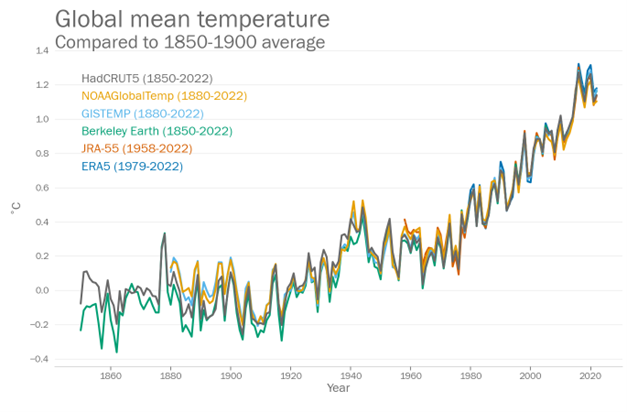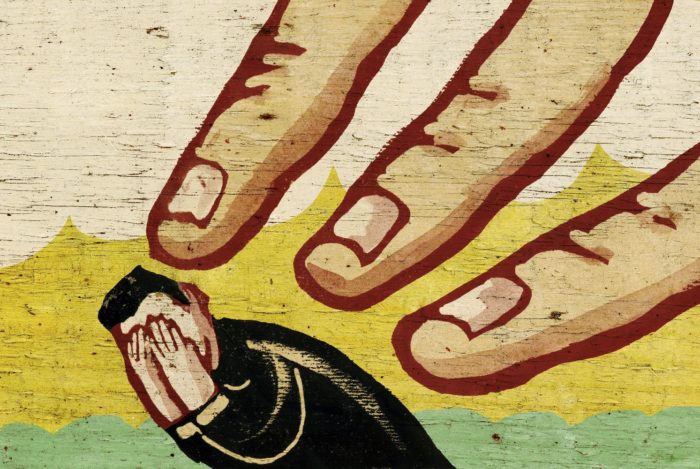May
07
2009
It must be tough being a highly visible politician – specifically taking questions from the public. You can get hit with highly technical questions in any area, often posed by someone with a narrow agenda and a great deal of information with which they can plan rhetorical mines. I don’t expect politicians to have all the technical details for any such issue at their fingertips. Experienced politicians, however, have learned how to handle such situations – the first rule of which is not to pull facts out of your butt.
George Bush’s most famous such gaffe, in my opinion, is when he said that the “jury is still out” on the question of evolution. Right – only greater than 98% of all scientists agree that evolution is a scientific fact, but we’re still waiting on the other 1% or so of hold outs.
Obama is not likely to get tripped up on the evolution issue, but he is vulnerable when it comes to science and medicine. Unscientific medical modalities and practitioners have found allies on both sides of the political aisle. The impending health care reform has also mobilized the CAM (complementary and alternative medicine) troops who are trying to twist the health care agenda to serve pseudoscience.
At a recent town meeting Obama received the following question and gave the following answer:
Continue Reading »
Nov
17
2008
Clinical research tends to follow a certain arc: first smaller and preliminary studies are done to see if there is a potential for a new treatment or approach, then larger and more tightly designed studies are done exploring the relevant research questions, and finally large, double-blind, placebo-controlled consensus trials are completed and the basic question of efficacy is settled.
In scientific jargon we often talk about the null hypothesis, the hypothesis that a new claim is not true, or in the context of medicine that a new treatment does not work. The question for a study is framed as follows: does the data support the rejection of the null hypothesis. This is not a subtle or unimportant distinction, it puts the burden of proof on demonstrating the positive new claim – that a treatment works. Unless the data compels us to reject the null hypothesis, it is retained as the default conclusion. Therefore, in these large and well-controlled trials, if the treatment does not work consistently and both clinically and statistically significantly better than placebo, we do not reject the null hypothesis. In practice we conclude that the treatment does not work and it is appropriately discarded in favor of better treatments or new ideas.
Unless of course you live in the alternate universe of acupuncture research (or more generally that of complementary and alternative medicine – CAM).
Continue Reading »
Sep
04
2008
Recently I was invited to write my views on acupuncture for a website called Opposing Views. I pre-published (with permission) my side of the debate on “Does Acupuncture Work” here at NeuroLogica. Taking the pro-acupuncture side is Bill Reddy – his profile states that he is “currently serving on the Executive Committee of the American Association of Acupuncture and Oriental Medicine.”
The format of the website allows for moderated comments, which are intended to allow for a written debate with the two sides. Here are my responses to the first round of arguments.
Continue Reading »
Aug
29
2008
Comming (by coincidence) on the heels of my recent blog entry on why I am skeptical of acupuncture, another major acupuncture study has just been published. This study looked at acupuncture for headaches, and was published in a major headache journal – Cephalalgia. The media, in typical fashion, gets the bottom line wrong, declaring: “Acupuncture may ease chronic headache pain.”
It took me about 10 seconds (literally) to realise that this study was utterly worthless. That is because it is unblinded – meaning that both subjects and physicians knew which patients were getting acupuncture and which were not, which further means that there is no way to know if the measured effect was all placebo.
Still I read the study to analyze it more carefully. My fellow skeptical blogger, Orac, has already beaten me to the punch, however, in deconstructing this study. I will not, therefore, repeat what he has written. He correctly points out the major flaws in the study – that it is not blinded, there is no sham-acupuncture group, and it is not fully randomized. He also points out many of the minor flaws, such as not distinguishing among the various headache types, some self-selection in the non-randomized group, and the reliance on subject memory (rather than real-time diaries) for data collection. Read his entry for a more detailed discussion of these fatal flaws.
What I want to discuss in more detail here is the very fact that this study was done in the first place. What purpose did it fill?
Continue Reading »
Aug
25
2008
Acupuncture is the practice of placing very thin needles through the skin in specific locations of the body for the purpose of healing and relief of symptoms. This practice is several thousand years old and is part of Traditional Chinese Medicine. As practiced today it is often combined with other interventions, such as sending a small current of electricity through the needles or burning herbs on the acupuncture points (a practice called moxibustion).
Acupuncture has recently been transplanted to the West, riding the wave of tolerance for unscientific treatment practices marketed as “complementary and alternative medicine.” While advocates have been successful at pushing acupuncture into the culture, the scientific medical community has still not accepted the practice as a legitimate scientific practice. I count myself among those extremely skeptical of acupuncture. I outline here the reasons for my continued skepticism.
Continue Reading »
Dec
10
2007
Yet another study has been published allegedly showing that “acupuncture works.” The study is published in the journal Anesthesiology and looks at post operative nausea and vomiting. There are many problems, however, with the conclusions drawn from the study an it does not support the claims of acupuncture.
The study also represents a big problem with the complementary and alternative medicine (CAM) literature and movement – that it uses ultimately fictional categories of types of treatment and then blurs those lines in an attempt to promote the category. In fact the entire category of CAM itself is a political fiction (there are no underlying principles that define CAM as a category) and CAM proponents deliberately try to include within the CAM category things like nutrition and physical therapy (which are evidence-based and definitely not CAM) as a way of legitimizing the category. Typically proponents will extrapolate wildly from – nutritional therapy A works for disease B, therefore nutrition works, and therefore CAM works, since nutrition is part of CAM.
Continue Reading »
Sep
25
2007
Acupuncture is a complex “alternative” modality because something physical is actually happening – thin needles are being stuck through the skin and manipulated. So it is therefore not impossible that a physiological response is happening. It is much easier to comment on things like homeopathy and therapeutic touch where literally nothing physical is happening and the plausibility for any benefit is therefore zero. So if I try to answer the question in my title, much explanation and qualifications are required. To answer this question – does acupuncture work? – my current best answer based upon available evidence is a qualified no. This answer is not changed by the most recent study of acupuncture that is being touted by the press as evidence that acupuncture works. (Here is the original study, but a subscription is required.)
Let’s first look at this study, which was a German study of acupuncture for back pain. Dr. Heinz Endres studied 1,100 randomized patients with three treatment arms. The first received standard therapy – massage, anti-inflammatories, and heating pads. The second received acupuncture, and the third received sham acupuncture where the needles were inserted but not deeply, and not manipulated, and not in traditional acupuncture points. The study found 47% improvement in the acupuncture group, 44% in the sham acupuncture, and 27% in the standard therapy group after 6 months.
This single study, even taken just by itself, falls far short of demonstrating that acupuncture works. And of course we have to place it in the context of plausibility and the entire acupuncture literature. We also have to identify appropriate sub-questions.
Continue Reading »
Dec
18
2023
 Even high quality media outlets will get it wrong from time to time. I notice this tends to happen when there is a mature and sophisticated propaganda campaign that has had enough time and reach to essentially gaslight a major portion of the public, and further where a particular expertise is required to understand why the propaganda is false. This is true, for example, for acupuncture, where even medical experts don’t have sufficient topic expertise to know why the claims being made are largely pseudoscience.
Even high quality media outlets will get it wrong from time to time. I notice this tends to happen when there is a mature and sophisticated propaganda campaign that has had enough time and reach to essentially gaslight a major portion of the public, and further where a particular expertise is required to understand why the propaganda is false. This is true, for example, for acupuncture, where even medical experts don’t have sufficient topic expertise to know why the claims being made are largely pseudoscience.
Where there is arguably the biggest gap between the scientific evidence and public opinion is genetically modified organisms (GMOs). There has been a well-funded and unfortunately successful campaign to unfairly and unscientifically demonize GMO technology, largely funded by the organic lobby but also environmental groups. Scientific pushback has ameliorated this somewhat. Further, the more time that goes by without the predicted “GMO apocalypse” the less urgent the fearmongering seems. Plus, genetic engineering works and is safe and is producing results, and people may be just getting more comfortable with it over time.
But it seems to me that there are still some people who are stuck in the anti-GMO narrative, and they are making increasingly poor and unconvincing arguments to sustain their negative attitude. An example is a recent article in The Conversation – Genetically modified crops aren’t a solution to climate change, despite what the biotech industry says. The article is by Barbara Van Dyck, who is a long time anti-GMO activist, even participating in disruptions of field trials. Let’s dive into her recent article.
Continue Reading »
Jan
03
2023
 Happy New Year to all my readers.
Happy New Year to all my readers.
Early in each new year I like to see what the preliminary reports are for the climate over the past year. Final number crunching won’t be available for months, and it may take more than a year for the final tweaks to be reported and reviewed. But we do have a preliminary estimate of the temperature over the last year. The World Meteorological Organization reports:
The global average temperature in 2022 is estimated to be about 1.15 [1.02 to 1.28] °C above the 1850-1900 average. 2015 to 2022 are likely to be the eight warmest years on record. La Niña conditions have dominated since late 2020 and are expected to continue until the end of 2022. Continuing La Niña has kept global temperatures relatively «low» for the past two years – albeit higher than the last significant La Niña in 2011.
It looks like 2022 will be the fourth hottest year on record globally. Some specific locations had their warmest year, such as the UK and Spain (and perhaps most of Europe). As the WMO points out, we are in the middle of a La Niña cycle, which brings cooler temperatures globally. That is a short term fluctuation on the longer term trend. This also means that as we shift into an El Niño cycle we are likely to break new records.
I feel compelled to point all this out (as I am sure many scientists and science communicator will) because it is a critically important piece of information. But I also want to put it into a broader long term context. I have been engaged in skeptical activism now for 27 years, and followed many skeptical topics for longer than that. There is one extremely important pattern that emerges when you cover a topic for a long time – scientifically valid concepts tend to not only accumulate evidence but the evidence gets better and builds on itself. Meanwhile, pseudosciences do not display this pattern. They tend to go around in circles with low quality evidence. You can see this pattern across multiple disciplines.
Continue Reading »
Dec
13
2021
 If someone gets seriously ill from COVID, to the point that they need to be hospitalized and even placed in ICU, and they were unvaccinated, how much should we blame them for their illness? This question can have practical implications, if we base decisions on allocating limited resources and insurance coverage of vaccine status. I wrote about this dilemma recently on Science-Based Medicine (and then discussed it on the SGU), and it sparked a lively discussion. Some of the responses amounted to justification for blaming the victim, which is essentially the core of the issue, and an important concept for activist skeptics to handle.
If someone gets seriously ill from COVID, to the point that they need to be hospitalized and even placed in ICU, and they were unvaccinated, how much should we blame them for their illness? This question can have practical implications, if we base decisions on allocating limited resources and insurance coverage of vaccine status. I wrote about this dilemma recently on Science-Based Medicine (and then discussed it on the SGU), and it sparked a lively discussion. Some of the responses amounted to justification for blaming the victim, which is essentially the core of the issue, and an important concept for activist skeptics to handle.
Blaming the victim can occur in many contexts. Within skeptical circles the most common manifestation is to blame people for being gullible (which is essentially the opposite of being skeptical). If someone, for example, falls for an obvious con it is easy to feel contempt or even anger toward that person for their gullibility. Sometimes gullibility is combined with scientific illiteracy. There are numerous pseudoscientific products on the market that require someone to have essentially no idea how the world works in order to believe the claims (or alternatively to compartmentalize any thoughts of mechanism of action). There are products that claim to improve the taste of wine simply by waving a plastic card over the glass, or to improve your athletic performance because you wear a small piece of rubber on your wrist – imbued with “frequencies” that harmonize with your body’s natural rhythms. There are fuel additives or devices that claim to dramatically improve the fuel efficiency of your car without any downside. And of course there are endless free energy devices that “they” don’t want you do know about.
It’s easy to write all this off as “caveat emptor” – if people pay a small price for their gullibility and scientific illiteracy, that is perhaps how it should be. We can then congratulate ourselves on being less gullible and more knowledgeable. Or we may moralize about individual responsibility, touting the fact that we invested the time to learn how to protect ourselves in a world full of con artists and scams. Blaming the victims of scams gives us the illusion of control (we can protect ourselves) and serves our sense of justice (people largely deserve what they get). But is this sort of blaming the victim morally or intellectually justified?
Continue Reading »

 Even high quality media outlets will get it wrong from time to time. I notice this tends to happen when there is a mature and sophisticated propaganda campaign that has had enough time and reach to essentially gaslight a major portion of the public, and further where a particular expertise is required to understand why the propaganda is false. This is true, for example,
Even high quality media outlets will get it wrong from time to time. I notice this tends to happen when there is a mature and sophisticated propaganda campaign that has had enough time and reach to essentially gaslight a major portion of the public, and further where a particular expertise is required to understand why the propaganda is false. This is true, for example,  Happy New Year to all my readers.
Happy New Year to all my readers. If someone gets seriously ill from COVID, to the point that they need to be hospitalized and even placed in ICU, and they were unvaccinated, how much should we blame them for their illness? This question can have practical implications, if we base decisions on allocating limited resources and insurance coverage of vaccine status. I
If someone gets seriously ill from COVID, to the point that they need to be hospitalized and even placed in ICU, and they were unvaccinated, how much should we blame them for their illness? This question can have practical implications, if we base decisions on allocating limited resources and insurance coverage of vaccine status. I 




